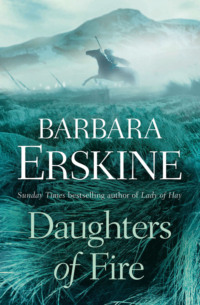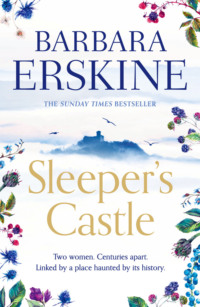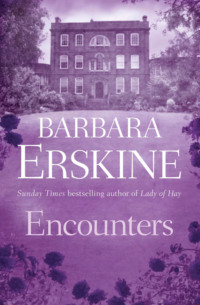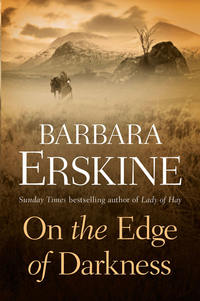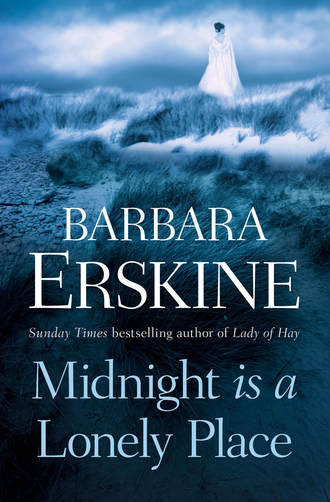
Полная версия
Midnight is a Lonely Place
She did not answer. Slamming the door behind her she had run down the steps and out into the street.
II
She missed him.
The flat was tidy, already empty though she was still there, and the days were ticking by. She had to find somewhere, somewhere she could afford, to live, to lick her wounded self esteem, to write.
She tried to justify what had happened; to explain it to herself. He was right. It had not been working. There had been too much conflict, too much competition between them. And all the sacrifices had been hers: her time, her concentration, her money and her commitment.
Well, now it was over. All her time, her concentration, her commitment could be focussed on one thing. One man. Byron. She stood, spreading honey on a slice of bread, watching the wholemeal crumbs disintegrate. Frowning, she tried to stick the crumbs back together. She couldn’t stay in London, that was obvious. Her money – the money she had leant him – had been her sole source of income. She had spent a morning scouring her bank statement and building society book, calculator in hand, trying to see how far she could make the last few hundred pounds stretch. Thank God she had had the sense to stick some of it into a tax fund which, even for Jon, she had not touched. Without that she would be in trouble indeed. It was all her fault. She was a sucker, a classic, besotted mug. She had no one to blame but herself. And Jon. She had tried calling him names. It helped, but always she came back to the empty space in her life and the fact that she missed him.
But life had to go on, which was why, two days later, she found herself at Broadcasting House, where her old friend, Bill Norcross, ran one of the production departments.
‘So, is what I hear on the grapevine true? You and Jon are a couple no more. The beautiful Kate Kennedy has turned at bay and bitten the hand that fed her.’
Bill leaned back in his chair and waved Kate into its twin, angled on the far side of his desk.
Swallowing a retort Kate sat down, aware of his eyes sliding automatically from the top of her black leather boots to the line of her hem. Secure in the knowledge that her thighs were thickly and unglamorously shrouded in black woollen tights she crossed her legs, deliberately provocative. ‘He never fed me Bill. I paid my share,’ she said calmly.
Bill grinned amiably. She was tall, like Jon, and with a similarity of build which had led many people to take them for brother and sister. Where on Jon the look was loose-limbed and laid back, on her it was elegant and graceful, an impression compounded by her long brown hair, tied loosely at the nape of her neck with a scarlet silk scarf, and by the slender fingers which at the moment dangled the pair of spectacles which she had put on to scrutinise Bill’s face and then removed as though a ten second scan was enough for a lifetime.
‘I need your help, Bill. I need somewhere to live for a bit.’ She paused and gave him a slow, reluctant smile. ‘I wondered if I could stay in your cottage.’
Bill frowned. ‘My God! You must be desperate. Do you know where my cottage is?’
She laughed. ‘It’s up in North Essex, isn’t it?’
‘It’s in the most beautiful corner of Essex, which is, to my mind, the most beautiful corner of England. But alas, at this time of year, it is also the most inaccessible and cold. I have only a minimum of so-called mod cons, the bedroom’s full of rubble, the roof leaks and it’s very damp and cold. You’d be miserable. Has Jon thrown you out?’
‘In a manner of speaking.’ She narrowed her lips. ‘I thought we shared a flat, but apparently not.’
‘So, you have split up?’
She nodded. ‘The histrionics are over. We’re both being frightfully civilised.’ It hurt to talk about it.
She had known Bill for fifteen years, since they had been freshers together at university. He was one of her best friends, but she was not going to tell him about the money. What she had done with her savings to render her unable to pay a decent rent was none of his business. Besides, Jon had promised he would pay her back when he received his next advance. Or the next … Cheerful, generous, feckless, selfish bloody Jon! and she was the mug who fell for him!
Bill leaned back and folded his arms across his chest. A stout, balding man in his mid thirties, he had a humorous, likable face which to his chagrin, failed to convey anything other than a perpetual, cheerful bonhomie.
‘Am I right in thinking Jon has relieved you of most of the dosh you made with Jane?’
She raised an eyebrow. ‘Is that what he told you?’
‘Not in so many words, no. I guessed. I’ve known you both a long while, after all, before you even met each other. Are you completely skint or can you afford some rent?’
‘Some,’ she said guardedly. ‘But not London prices.’
‘No. Near me. In Essex. Up at Redall Bay. My neighbours have a cottage they want to rent to someone for six months. It’s a couple of miles from mine; a lot more civilised. Quiet.’ He gave a sudden laugh. ‘Quiet as the grave.’
‘Would they rent it to me?’
‘I’m sure they would. They were talking about it last time I was up there. They need the money. If I recommend you and if you can rustle up a cheque for three months’ rent in advance I’m pretty certain I can fix it for you.’ He leaned forward abruptly and pulled open a desk drawer. The sheaf of photos he threw onto the blotter in front of her were crumpled and much thumbed. ‘It’s bleak, Kate. You’d better think hard about it. You would be terribly lonely.’
She picked them up with a glance at his face. ‘I know it’s bleak. I know the coast. I’ve been up there once or twice.’
The pictures featured a series of holiday scenes: people, boats, dogs, children, sand, shingle and always the sea – a grey-green, muddy sea. In one she saw a small cottage in the distance. ‘Is that your place?’
He nodded. ‘I don’t go there much in the winter. I can’t stand the cold and the desolation.’
‘It looks lovely. But too crowded.’ She glanced up at him mischievously. ‘I want solitude. I am writing a book, don’t forget.’
‘What else?’ With an expansive gesture of his arms Bill stood up. ‘If I can find a tenant for Roger and Diana who can pay good solid money for the privilege of staying in that God-forsaken cottage of theirs freezing their balls off – saving your presence – I shall earn loads of Brownie points with them and they’ll be in my debt forever. Give me a couple of days to phone them and send them your cheque and I can assure you that provided it doesn’t bounce, they will welcome you with open arms.’
She stood up. ‘Don’t tell Jon where I’m going, Bill, assuming he’s even remotely interested,’ she said as she left. ‘At least for now I want it to be a complete break. On my terms.’
‘Bitch.’ It was said with great affection.
‘Well, why not. He’s dropped me in it.’ She was surprised at her own lack of anger.
‘Silly sod.’ Bill grinned amiably. ‘I’ll tell you what. I’ll drive down with you at the weekend. It won’t do any harm for my place to have a quick airing, then you can drop me at the station on Sunday night and I shall abandon you to the east wind and return here to my creature comforts.’
It did not take long to clear her stuff out of Jon’s flat. There didn’t seem to be much of it – apart from her books, of course.
They had discussed it all amicably in the end, just as she had determined that they should. They had been adult and businesslike and utterly calm in the division of their affairs – a divorce without the complications of a marriage – and with a cool kiss on her cheek Jon had departed for New York several days earlier than he had originally intended. He did not ask her where she was going; they had not mentioned the money.
A half-dozen boxes and suitcases packed into the back of her car, a carton of plants, carefully wrapped against the cold wind, and an armful of unwanted clothes. That was the sum total of her life in London which she ferried to the attic of Bill’s house in Hampstead – all to be put in store except the plants which were to be pampered and coddled by him far from the East Anglian wind. That left her laptop and printer, her books, her boxes of filing cards and notes and a couple of suitcases packed with jeans and thick sweaters and rubber boots. It was not until she had piled them into her small Peugeot and gone for one last look around the flat that the small treacherous lump in her throat threatened to choke her. She swallowed it sternly. This was the beginning of the rest of her life. Slamming the front door behind her she pushed her keys through the letter box, hearing them thump onto the carpet the other side of the door with a dull finality which suited her mood exactly. She had not enquired how Cyrus Grandini would gain entry to the flat and Jon had not told her. Turning the collar of her jacket up around her ears she ran down the steps towards her car. She would pick Bill up at the Beeb on her way across London and then together they would head north-east.
III
The tide crept higher, drawn inescapably onward by the full moon lost behind ten thousand feet of towering cumulus. Softened by the sleet in the ice-cold wind the sand grew muddy and pliant beneath the questing fingers of water. The shingle bank was deserted, lonely in the darkness. As the water lapped the stones in silence, gently probing, a lump of sand broke away from the mound behind it and subsided into the blackness of the water. Behind it, a further fissure formed. Matted grass strained and tore, a network of fine roots pulling, clinging, interlocked. The grass hissed before the wind, grains of sand flicked into the air by a gust, veering round into the east. Now the wind and the tide were of one mind and, inexorably, the water crept forward.
The small pocket of clay, left on the floodplain of the River Storwell after the glaciers had melted, had two thousand years ago, been at the bottom of a freshwater marsh. Long ago drained, the marsh had gone and the rich pasture which replaced it had turned, over the centuries, to arable then to scrub and to woodland, and then, as the sea advanced inexorably on the eastern coasts of England, to shingle beach. Now, after nearly two millennia of change and of erosion the soil, sand and gravel which still separated the clay from the air and the light was only centimetres thick.
IV
Diana Lindsey’s plump figure was swathed in a thick pair of trousers, an anorak and a vast lambswool shawl as she stood in the doorway of Redall Cottage watching her eldest son lighting the fire. She was a small fair-haired woman, pretty, with light green eyes and reddened, work-worn hands.
‘Hurry up. Lunch will be ready soon, Greg. I’ve already wasted enough of this morning with all your fuss.’ She cast a professional glance around the small living room. Watery sunlight poured through the window, illuminating the bright rag rugs on the floor and the small sofa and chair which had been pulled up around the fire. She was pleased with the room. They had only had twenty-four hours to tidy the place, to move Greg’s belongings out of it and to replace them with a few pieces of respectable furniture: a table and two chairs for the kitchen; a small Victorian nursing chair for the bedroom where the double bed had been the only fixture; sheets, towels, a box of basic groceries – Bill’s idea and well beyond the landlord’s brief, but she had agreed with him that the place would be cold and lonely enough without finding there was no food or coffee in the cupboards and no shops for miles, and those there were, not open until Monday morning. The final touch had been to light the woodburner which was settling now to a steady roar, and fill a vase with winter jasmine for the kitchen table.
Greg latched the burner’s doors and stood up. His burly presence filled the small room and he had to bend his head beneath the ceiling beams. ‘Right. Satisfied now, Ma? Lady Muck will be comfortable as a bug in a turd here.’
‘Don’t be vulgar, Greg.’ Her reproach was automatic. Bored. She went through into the kitchen and had a final look round there, too. The pots and pans and plates were almost unused – Greg had never bothered to cook anything except coffee as far as she could tell. The knives and forks and spoons she had brought over from the farmhouse. ‘Right. Let’s get back. Bill phoned to say they would probably be here by tea time. He wanted her to settle in before it got dark.’
‘How wise.’ Greg pulled open the front door. Behind them the flames in the woodburner dipped and flared and steadied behind the blackening glass of the doors. ‘Shall I call Allie?’
Leaving his mother to head for the Land Rover parked at the end of the rutted track which led through the half mile or so of bleak woods separating the cottage from Redall Farmhouse, he turned and walked around the side of the cottage. The small, timber-framed building, painted a soft pink, nestled in a half-moon of trees. Behind it, short rabbit-cropped turf formed an informal lawn which straggled towards the sand and shingle spit separating the estuary of the River Storwell from the beach and the cold waves of the North Sea. It was a windy, exposed site, even today when the sun was shining fitfully from behind the broken cloud.
‘Allie!’ Greg cupped his hands around his mouth and bellowed for his sister. As his mother opened the door of the Land Rover and climbed in, he disappeared around to the far side of the cottage into the teeth of the wind.
Alison Lindsey, fifteen years old, her blonde hair tightly caught by a rubber band into a pony tail tucked into the neck of her yellow windcheater, was crouching in the lee of one of the shingle and sand dunes which stood between the cottage and the sea. She glanced up as her brother appeared and raised her hand, the wind whipping tendrils of hair into her eyes.
‘What have you found?’ He jumped down the small sandy cliff to stand beside her. Out of the wind it was suddenly very quiet, almost warm in the trapped sunlight.
‘Look. The sea washed the sand away here. It must have happened at high tide.’ She had been scrabbling at the sand; her fingers were caked with it. He could see where she had caught her nail. A small streak of blood mingled with the golden red grains stuck to her skin. She had dug away the side of the dune and pulled something free. ‘See. It’s some kind of pottery.’
He took it from her, curious. It was slipware, red, the glaze shiny with a raised pattern, hardly scratched by the sand.
‘Pretty. It must be something someone chucked out of the cottage. Come on Allie. Ma’s in a ferment. She wants to feed us all before she goes off to Ipswich or wherever it is she is going this afternoon, and I want to get out of here before Lady Muck turns up.’
Alison took the piece of pottery from her brother and wedged it into her anorak pocket. She glanced up at him. ‘Why do you call her that? She’s famous, you know. She’s written a book.’
‘Exactly.’ He smiled grimly. ‘And no doubt will feel herself superior in every way to us country bumpkins.’ He gave a short laugh as he scrambled up the bank and turned to give his sister a hand, hauling her bodily out of the sandy hollow. ‘Well, she’ll soon find out that living in the country at this time of year is not the same as swanning out for the odd picnic in the summer. Then perhaps she’ll go away.’
‘And let you have the cottage back?’ Alison surveyed him shrewdly, her green eyes serious.
‘And let me have my cottage back.’ He looked at her thoughtfully. ‘Don’t say anything to Ma, Allie, but I think between us you and I can find a way to chase Lady Muck away from Redall Cottage, don’t you?’ He smiled. ‘Perhaps we can give the weather a helping hand. Scare her off somehow.’
‘You bet.’ She laughed. Then she frowned. ‘But don’t we need the money?’
‘Money!’ Greg snorted. ‘Doesn’t anyone think of anything else around here? For the love of Mike, there are other things in the world. We’re not going to starve. Dad’s pay-off and his pension are more than enough to last us for years. We can afford petrol and electricity and food. They can afford to buy booze. My dole money buys my paint and canvas. What does every one want all this money for?’
Alison shrugged dutifully. She knew better than to argue with her elder brother. Besides he was probably right. She sternly pushed down a sneaking suspicion that his views were simplistic and wildly immature – he was, after all, twelve years older than she – and, pushing her wispy hair out of her eyes for the thousandth time as they reached the Land Rover, she pulled open the door and hauled herself into the front seat beside her mother.
In the farmhouse the third Lindsey offspring, Patrick, had been laying the table for lunch, walking silently around the kitchen in his socks as his father dozed in the cane chair before the Aga, two cats asleep in his lap. The silence of the room was broken only by the ticking of the grandfather clock in the corner and by the gentle bubbling from the heavy pan on the stove. The air was rich and heavy with the fragrance of the cooking chicken in its thick herb-flavoured gravy. Two years older than Alison, Patrick was the studious member of the family. Upstairs in his bedroom – the north-facing end room above the kitchen, according to Alison the best room in the house because of its size – computer, printer, calculating machines and hundreds of books vied with one another for space, overflowing from tables and chairs on to the floor and even from time to time out into the corridor outside his sister’s room. At the moment Patrick was lost in thought, his mind still fully occupied with his school project. He noticed neither the noise of the engine as his brother drove up outside and parked the Land Rover around the side of the house, nor the speed with which Number Two cat, Marmalade Jones, jumped off his master’s lap and onto the worktop where he proceeded to lick the pat of butter which Patrick had incautiously withdrawn from the fridge.
The opening door woke Roger, startled Patrick and gave the cat an unwonted and sudden attack of conscience.
‘My goodness it’s cold out there.’ Diana went straight to the heavy iron pan simmering quietly on the Aga and peered inside it before she took off her coat.
‘Bill rang.’ Roger stretched and reached for the newspaper which had slid from his inert fingers as he slept. Indignant at the move, Number One cat, Serendipity Smith, slipped from his knees and diving through the open studwork which separated the kitchen from the living room, went to sit on the rug in front of the fire, staring enigmatically into the embers. ‘They should be here by about three. Apparently she’s an absolute cracker!’ He grinned at his eldest son and gave a suggestive wink. ‘You might try charming her, Greg, just this once. I can’t believe as your mother’s son you are completely devoid of the art.’
‘Oh you.’ Diana gave her husband a playful tap on the head.
Greg ignored them both. Sealed in an intense inner world of frustrated imagination he frequently missed his parents’ affectionate banter. Walking through to the fire he stooped and threw on a log. ‘Half the old dune behind the cottage has gone,’ he called through to them. ‘You know the one which shelters it from the north-easterlies. A few more tides like that one last week and we’ll need to worry about the cottage being washed away.’
‘Rubbish.’ Diana, having hung up her coat was now tying a huge apron over her trousers. The apron sported a giant red London bus which appeared to be driving across the rotund acres of her stomach. She shook her head. ‘No way. That cottage has been there hundreds of years.’
‘And once upon a time it was miles from the sea, my darling.’ Roger stood up. Painfully thin, his face was haggard with tiredness, a symptom of the illness which had forced him to take early retirement. ‘Come on. Why don’t I open a bottle of wine. That stew of yours smells so good I could eat it.’ He smiled and his wife, on her way back to the Aga with her wooden spoon, paused to give him a quick hug.
‘Show Dad the piece of china you found in the dune, Allie,’ Greg called from the next room. His sister, still wearing her anorak, had seated herself at the table, her elbows planted amongst the knives and forks which Patrick had aligned with geometric neatness. She fished in her pocket and produced it.
Roger took it from her and turned it over with interest. ‘Its unusual. Old I should say. Look at the colour of that glaze, Greg.’ He held it out towards his eldest son. Reluctantly, Greg left the fire. Taking the fragment he turned it over in his hands. ‘You could take it into the museum some time, kiddo,’ he said to Alison. ‘See what they say.’
‘I might.’ Alison stood up and they were all surprised to see her eyes alight with excitement. Her usual carefully-studied air of ennui had for a moment slipped. ‘Do you know what I think? I think it’s Roman. There’s stuff just like it in the castle museum.’
‘Oh, Allie love, it couldn’t be. Not out here.’ Diana had produced four glasses from the cupboard. She handed her husband the corkscrew. ‘The Romans never came this far out of Colchester.’
‘They did, actually. They’ve found a lot of Roman stuff at Kindling’s farm,’ Roger put in. He tore the foil from the top of the wine bottle. ‘Do you remember? They found the remains of a villa there. Some rich Roman chap from Colchester retired here. They found an inscription.’
Alison nodded. ‘Marcus Severus Secundus,’ she said, intoning the words softly.
‘That’s right.’ Roger nodded. ‘There was an article about him in the local paper. And they found even older stuff too. Iron Age, I think it was, or Bronze Age or something. Are you still thinking of doing something archaeological for your project, Allie?’ He smiled at his daughter.
‘Might.’ Her sudden burst of enthusiasm had apparently run its course. She sat down again and spread her elbows, scattering knives and forks. Patrick frowned, but he said nothing. He had learned a long time ago that a comment from him would produce a tirade of abuse from his sister which would upset everyone and end up with the whole meal being spoiled. It had happened before too often.
‘I’m going to excavate the dune.’ Alison’s sudden announcement stopped Roger’s hand in mid air as he poured the wine.
‘That sounds a bit ambitious, old girl,’ he said cautiously. ‘There would be a lot of hard digging and you might not find anything.’
‘I found something before.’
‘In the same place?’ Greg looked across at her, disbelieving. ‘Why didn’t you say?’
‘None of your business.’ Alison reached for a glass of wine which left Patrick without one.
‘Hey, that’s mine –’
‘Pour yourself one.’ When neither parent said anything she raised the glass defiantly to her lips and took a sip.
‘What did you find, Allie?’ Roger’s voice took on the conciliatory tone he often used with his daughter – soft, persuasive, almost pleading.
‘I’ll show you.’ She rose to her feet, and, her glass still in her hand, trailed towards the staircase which led from the living room behind the door in the corner by the inglenook.
‘There’s loads of books on archaeology in her room,’ Patrick put in in an undertone when she was out of earshot.
‘You haven’t been in there again.’ Diana was exasperated. ‘You know she doesn’t like it –’
‘She nicked my Aran sweater. I needed it.’ Patrick’s mouth settled in a hard line, exactly like his sister’s as Alison reappeared with a shoe box in her hand.
‘Look. I found all these on the beach there, or in the cliff or in the saltings, and these two I dug up from the dune.’ She tipped the contents of the box onto the table amongst the knives and forks. For once there was no comment about the shower of dirty sand which descended over the cutlery on Diana’s scrubbed table top: several shards, a few pieces of carved bone and one or two unrecognisable fragments of twisted, corroded metal. ‘I think it’s a grave. A Roman grave,’ she said solemnly.


